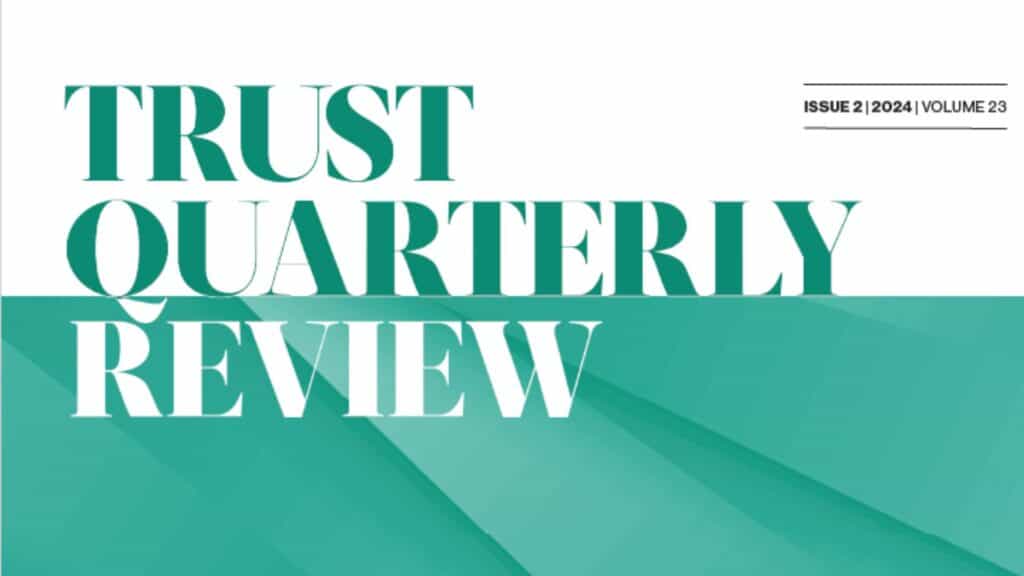This summary of John J. Ryan’s article in the STEP Quarterly Review explores the implications of the OECD’s Common Reporting Standard (CRS) on taxpayer rights and the rule of law. The CRS, designed to enhance global tax transparency, aims to create a seamless mechanism for the automatic exchange of information (AEOI) among 114 jurisdictions. However, it raises significant concerns about its validity as a universal standard, especially in jurisdictions that do not adhere to the principles of rule of law and taxpayer rights.
The OECD
The OECD’s international tax transparency initiative began with the 1998 publication “Harmful Tax Competition: An Emerging Global Issue.” Initially, the OECD’s approach was confrontational, aiming to coerce international financial centers (IFCs) into compliance. This approach evolved into establishing international standards for information exchange, starting with the Exchange of Information on Request (EIOR) in 2009 and later, the automatic exchange of information (AEOI) under the CRS in 2014, modeled after the U.S. FATCA but with reciprocal information exchange.
The OECD’s Global Forum
The Global Forum on Transparency and Exchange of Information for Tax Purposes oversees the CRS. Admission to the Global Forum requires jurisdictions to commit to EIOR and AEOI standards, but not necessarily to the rule of law or taxpayer rights. The Global Forum’s peer review process focuses on confidentiality and data safeguards without assessing adherence to the rule of law.
Joining the CRS
Jurisdictions must adopt the amended Convention on Mutual Administrative Assistance in Tax Matters and implement domestic legislation to join the CRS. However, adherence to the rule of law and taxpayer rights is not a prerequisite, potentially exposing taxpayers in non-rule-of-law states to abuses.
The Rule of Law
The OECD promotes the rule of law as vital for economic development. However, there is no reference to the rule of law in CRS documentation, nor is it a requirement for participating in the Global Forum. This omission allows jurisdictions that do not respect the rule of law to participate, undermining taxpayer protections and potentially leading to human rights violations.
Taxpayer Rights
Taxpayer rights, including notification, challenge, and appeal rights, are crucial under the rule of law but have been eroded under both EIOR and AEOI standards. The Global Forum pressures jurisdictions to amend domestic laws to facilitate information exchange, often at the expense of taxpayer rights. Jurisdictions lacking robust legal protections leave taxpayers vulnerable to abuses.
EOIR and AEOI Compared
EOIR involves information exchange upon request, with each request evaluated individually, allowing for greater protection of taxpayer rights. AEOI, however, involves bulk data exchange, heightening the risk of rights violations as taxpayers often have no legal recourse to challenge the exchange.
A Universally Valid Standard
A universally valid international tax standard requires respect for the rule of law and fundamental taxpayer rights in all jurisdictions. The CRS fails in this regard as it includes jurisdictions that do not adhere to these principles. Restricting the CRS to rule-of-law states could create a valid, albeit non-universal, standard.
The Legal Basis for Exchange
The legal framework for CRS exchanges, primarily the Amended Convention, aims to balance effective information exchange with taxpayer rights. However, this balance favors efficiency over protection, especially in jurisdictions that do not respect the rule of law.
Public Policy (Ordre Public)
The Amended Convention allows jurisdictions to withhold information that contravenes their public policy, including politically motivated tax investigations. However, these protections are limited and may not provide comfort in non-rule-of-law jurisdictions.
The Terms of Reference
The Global Forum’s Terms of Reference detail confidentiality and data safeguards but exclude criteria for adherence to the rule of law and taxpayer rights. This omission undermines the integrity of the AEOI standard.
The Peer Reviews
The Global Forum’s peer reviews assess compliance with AEOI requirements but do not include confidentiality assessments. The lack of transparency in these reviews raises concerns about the adequacy of data protection in participating jurisdictions.
The Case of Switzerland
Switzerland’s CRS legislation includes provisions for taxpayer notification and objection to information exchange. However, these protections are limited, as Swiss courts interpret public policy narrowly, offering minimal recourse for taxpayers facing violations in their home jurisdictions.
Conclusion
The OECD’s Global Forum has compromised the rule of law and taxpayer rights in its implementation of the CRS. To ensure a fair and effective standard, rule-of-law jurisdictions should assert public policy protections and restrict AEOI to compliant states. The Global Forum should amend its criteria to include rule of law and taxpayer rights and make confidentiality assessments public.
Contact our team to learn how we can assist you in navigating the complexities of the CRS and ensuring your taxpayer rights are protected.
John J. Ryan, CRS and the rule of law, STEP Trust Quarterly Review, 2024, Issue 2, Volume 23




